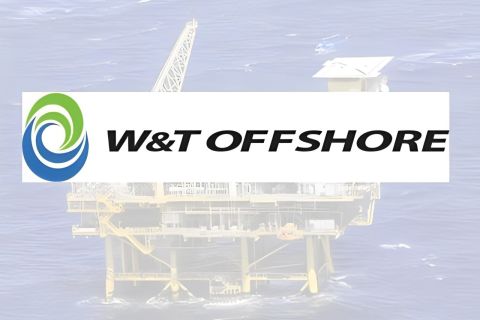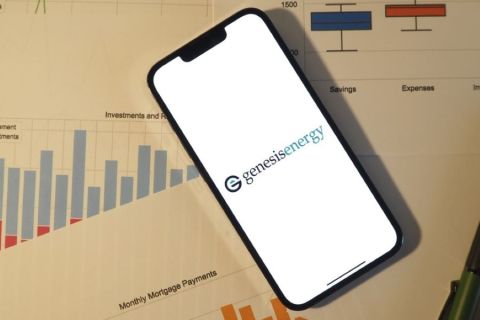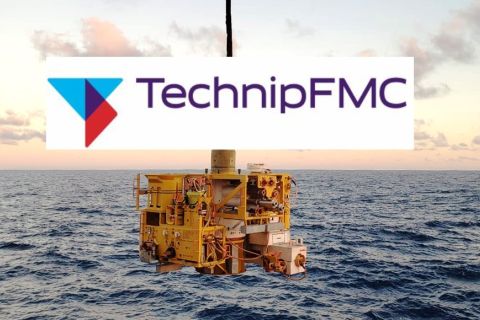[Editor's note: A version of this story that appears in the January 2019 edition of Oil and Gas Investor also previously ran on the site here.]
Denbury Resources Inc. and hedge fund Mangrove Partners Master Fund Ltd. agree that Penn Virginia Corp. is a compelling investment. But, according to Mangrove, it’s a compelling investment if not merged with Denbury.
“Denbury Resources and [Penn], as a combined entity, is not of interest to Mangrove Partners,” Nathaniel August, a Mangrove director, reported in a Nov. 14 SEC filing after meeting with the two E&Ps’ management on the matter.
Penn announced on Oct. 28 that it would merge with Denbury for $1.7 billion in stock, cash and debt assumption.

From left, Citi’s Steve Trauber, Kirkland & Ellis’ Andrew Calder and Blackstone’s Angelo Acconcia discussed E&Ps’ capital access, investor sentiment, deal-making and more at Deloitte’s Oil & Gas Conference in Houston this fall.
August added in his filing that “other [Penn] shareholders have reached out to Mangrove to express their dissatisfaction” as well. And Denbury shareholders didn’t appear to like the deal either, he wrote, “driving Denbury’s shares down over 40% in the 12 trading days since its announcement.”
He stated he wouldn’t vote for it; Mangrove held 9.5% of Penn’s outstanding shares at the time.
He followed up on this in a Nov. 28 filing, having picked up more shares for a total of 10.7% of outstanding. He wrote that he had called on Penn in a Nov. 26 meeting “to work with Denbury … to terminate the proposed transaction.”
Also, he asked for shareholder records to commence communications with them. Meanwhile, Strategic Value Partners LLC, an owner of 10.2% of Penn shares, stated it supported the merger and had signed an agreement with Denbury to vote its shares in favor.
Cold shoulder
The public-equity markets have entered a mini-Ice Age since the downturn, according to industry transactioneers who spoke at Deloitte’s Oil & Gas Conference in Houston two days after the Denbury-Penn announcement.

“Even the largest companies right now are very nervous about doing [a] large transaction because they’re scared their stock is going to get absolutely hammered,” said Andrew Calder, a Houston-based partner in law firm Kirkland & Ellis LLP.
Angelo Acconcia, senior managing director with investor The Blackstone Group LP, said he’s been stunned by the market response to an oil price that has rebounded from less than $27 a barrel. Had he been told in 2015 that “the general equity indices of the upstream sector would be largely unchanged [upon rebounding to $70], I would have laughed.”
Yet, “that’s what’s happening.”
The market’s cold shoulder reflects the paradigm shift that now dogs every E&P at quarterly-earnings time. “I think this risk-focus in the market has manifested itself in a ‘show me, prove it to me’ mentality,” he said. “And the easiest way to do that is with free cash flow and dividends.”
Steve Trauber, Citi vice chairman and global head of energy, said public-equity markets are closed to the energy sector as generalist investors figure out whether oil and gas will be competitive, on a return basis, with other sectors.
“Today, the S&P 500 is probably about 6% energy,” he said. “There is no generalist investor who’s going to outperform his peers by investing [in] energy.”
Investors are waiting to see whether upstream, midstream and service companies can actually generate economic returns greater than their cost of capital. “There’s not a lot of capital today coming into the energy sector, which remains a problem,” Trauber said.
Oil and gas producers and others are stuck—unable to access capital to grow and punished by markets for transactions that bring scale. “Where we are today,” Acconcia said, “is the market is saying [companies] need to generate free cash flow, which is putting a constraint on companies to grow organically and inorganically.”
The larger message is “We’re not coming back until you change.”
The ‘panel of judges’
Calder has seen firsthand the turmoil of the disconnect, particularly among investors without a history in the oil and gas business. “We’ve been involved in deals that have fallen apart as a result of the stock-market reaction.”
While he didn’t mention any specific deals, his clients have included Bonanza Creek Energy Inc. In 2017, SandRidge Energy Inc. offered $746 million in cash and stock for Bonanza, which had no debt; the transaction was crushed under pressure from SandRidge activist investors that included Carl Icahn. (Mangrove, a Bonanza investor, had supported the deal.)
Volatility in the oil and gas sector hasn’t been limited just to market caps and oil-price swings. That’s changed what Acconcia called the market’s “panel of judges.”
“A lot of the investors are shortsighted,” he said, adding that management teams know their costs, inventory and strategic M&A needs better than anyone else. “You’re being held accountable to those people, which can create a misalignment.”
Nevertheless, management teams continue to make deals. “They realize they aren’t necessarily going to get appreciated by the public markets today. But they have more information than the markets about their business, and they’re going to make the right decisions,” Acconcia said.
“That accountability [to shareholders], while negative today, will prove up to be a winning strategy.”
The morning of the conference, Chesapeake Energy Corp. reported plans to buy WildHorse Resource Development Corp. for nearly $4 billion in stock, cash and debt assumption.
Acconcia applauded it and said Denbury was due congratulations too.
Mangrove reported that day that Penn—an Eagle Ford pure-player as is WildHorse—should command a higher premium than Denbury offered. He followed up two weeks later that there appeared to be a dislike for the Denbury deal “beyond the typical arbitrage pressures following the announcement of a stock-for-stock transaction.”
Rather, the reaction, as reflected in the decline in Denbury’s share price, seemingly “reflects a rebuke of the transaction itself.”
Going to school
Penn’s impasse with Mangrove hasn’t been an isolated phenomenon. In July, Concho Resources Inc. closed its all-stock deal to buy RSP Permian Inc. after initially losing 9% of its value following the $9.5-billion transaction, including debt assumption, news in March.
Diamondback Energy Inc.’s shares were tapped by about 10% after it announced in August plans to buy Energen Corp. for $9.2 billion in stock and debt assumption.
As public-equity markets have closed their doors to E&Ps, the business of deal-making has fundamentally changed, Calder said. Before the downturn, New York hedge funds didn’t always understand the basics of the industry, such as working interests or how basins play out.
“The downturn basically sent all these hedge funds to school,” he said, adding that those funds hold sway over 10 to 15 E&Ps now since lien-holdings were converted to equity in restructurings.
“The problem is, they don’t see industry the same way traditional management teams see it,” Calder said. “They also don’t believe any one basin should be 10 companies with separate G&A. They believe there should be consolidation.”
Whether that’s right or wrong, he didn’t opine. “But that’s their view of the world.”
In Energen’s case, Icahn and other activists wanted the company to sell, resulting in the deal that brought Diamondback in; the deal closed on Nov. 29.
Trauber sees merit in investors’ demands to find scale or greatly increase shareholder value. Even “brand-name investors” are increasingly playing the role of activists, though they may do so behind the scenes.
Management teams also tend to become entrenched from time to time and genuinely like running their companies, even if going it alone may not be in the best interest of shareholders.
“I can’t think of any more fragmented sector of the world that benefits from putting these companies together,” he said. “You’ve got to look at these combinations and the [economies of scale and cost savings] that they bring.”
With the drawbridge to public markets pulled up, Calder said some companies are finding alternatives.
“Public companies are looking for another avenue to make these transactions that may not simply rely on going to the public markets,” he said.
Consolidation among E&Ps and among oilfield-services firms seems inevitable, the panelists said, regardless of being shunned by public markets.
Trauber said that, in October, perhaps 40 or 50 small, private, oilfield-service companies were up for sale, though “close to 90% of them are not being sold. They’re not meaningful to anybody by themselves. They just don’t have a home.”
Many private E&Ps face the dilemma of having matured to a stage at which they would be better served as public vehicles but cannot muster support for an IPO.
“Just in our own backyard we have at least 10 IPOs that want to go public that aren’t able to go public,” Trauber said, including out-of-favor gas-weighted E&Ps and Gulf of Mexico operators.
Exit via SPAC
Yet multiple exits remain open to private companies. For one, private capital “wants to be out there,” Calder said.
“There must be 200 to 300 funds out there, looking to get into oil and gas right now,” he said. “When that’s the case, there are only so many management teams you can hire.”

In November, QEP Resources Inc. struck a deal to sell its Williston Basin assets to Vantage Energy Acquisition Corp. for $1.65 billion in cash plus up to 5.8 million shares. Vantage and other special-purpose acquisition companies (SPACs) continue to be popular among investors.
And more are coming, Trauber said. “Why are there more SPACs coming? Because there’s dysfunctionality among the equity markets. A SPAC invests the greatest capital—more capital than you’re likely to get doing an IPO.”
Despite the success of blank-check companies that formed Magnolia Oil & Gas Corp. and Centennial Resource Development Inc., not all SPACs are destined for success, Calder said. For private companies, there’s always uncertainty that the SPAC’s investors won’t like a transaction when one materializes.
But a private E&P’s transaction with a SPAC also offers the flexibility of taking cash, stock or both, Trauber said. More deals are on the way, he added, citing the fragmented energy space.
“There are so many companies looking for a home.”
Acconcia said he sees opportunities for private companies to sell to private buyers. With the public market diverted from energy, Blackstone will try to grow through organic and inorganic consolidations.
“We look at it as an opportunity,” he said.
Blackstone’s public and private companies try to develop the endurance and capital flexibility required to live through rough cycles, independent of public currency. Otherwise, companies find may find themselves at the mercy of public markets and forced into M&A that is neither accretive nor dynamic.
“What most companies are trying is to be patient,” Acconcia said. “That’s part of what you do in a volatile market.”
Recommended Reading
Will the Ends Justify the Means for W&T Offshore?
2024-03-11 - After several acquisitions toward the end of 2023, W&T Offshore executives say the offshore E&P is poised for a bounce-back year in 2024.
Genesis Energy Declares Quarterly Dividend
2024-04-11 - Genesis Energy declared a quarterly distribution for the quarter ended March 31 for both common and preferred units.
TechnipFMC Eyes $30B in Subsea Orders by 2025
2024-02-23 - TechnipFMC is capitalizing on an industry shift in spending to offshore projects from land projects.
Some Payne, But Mostly Gain for H&P in Q4 2023
2024-01-31 - Helmerich & Payne’s revenue grew internationally and in North America but declined in the Gulf of Mexico compared to the previous quarter.
In Shooting for the Stars, Kosmos’ Production Soars
2024-02-28 - Kosmos Energy’s fourth quarter continued the operational success seen in its third quarter earnings 2023 report.






